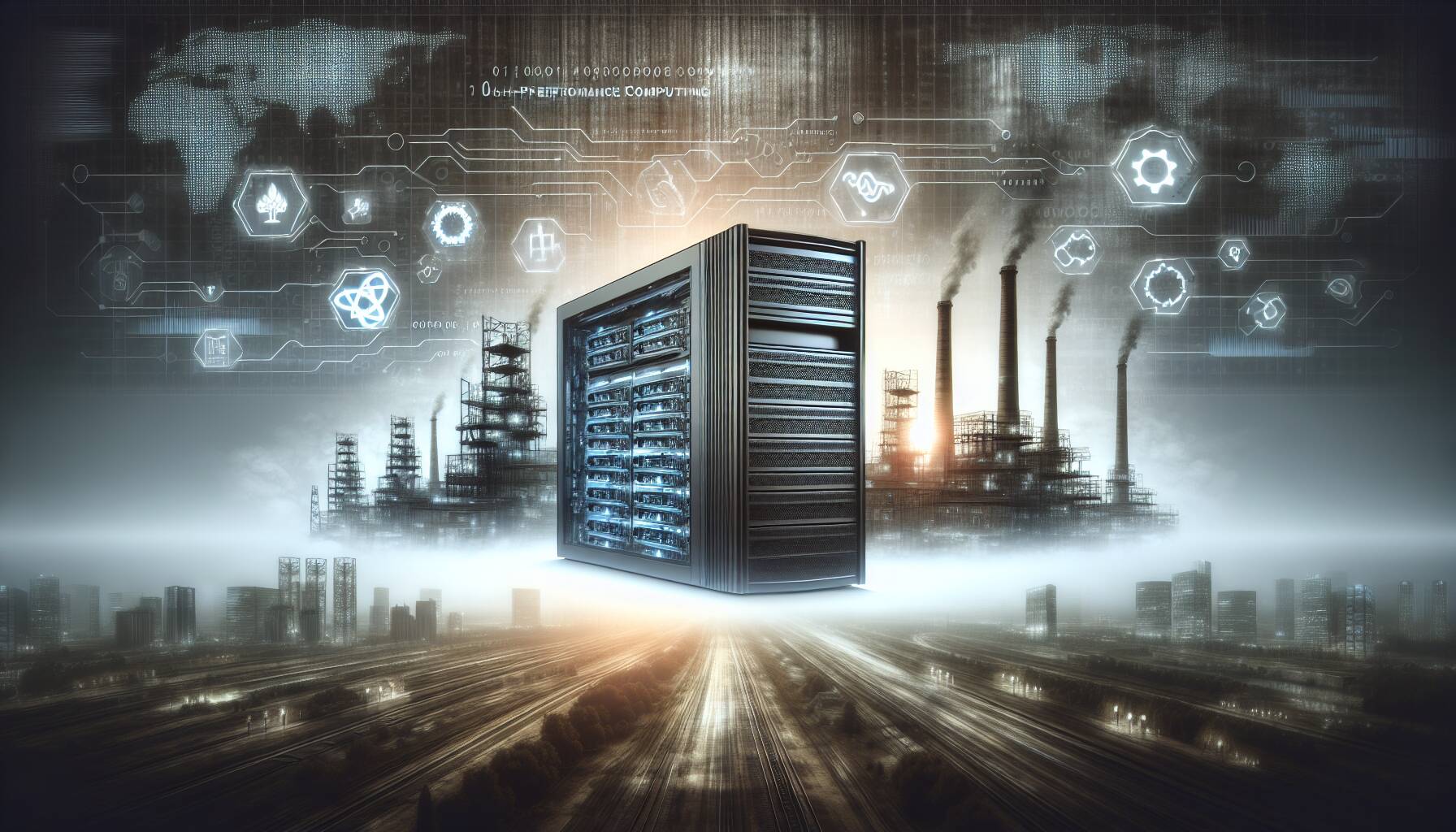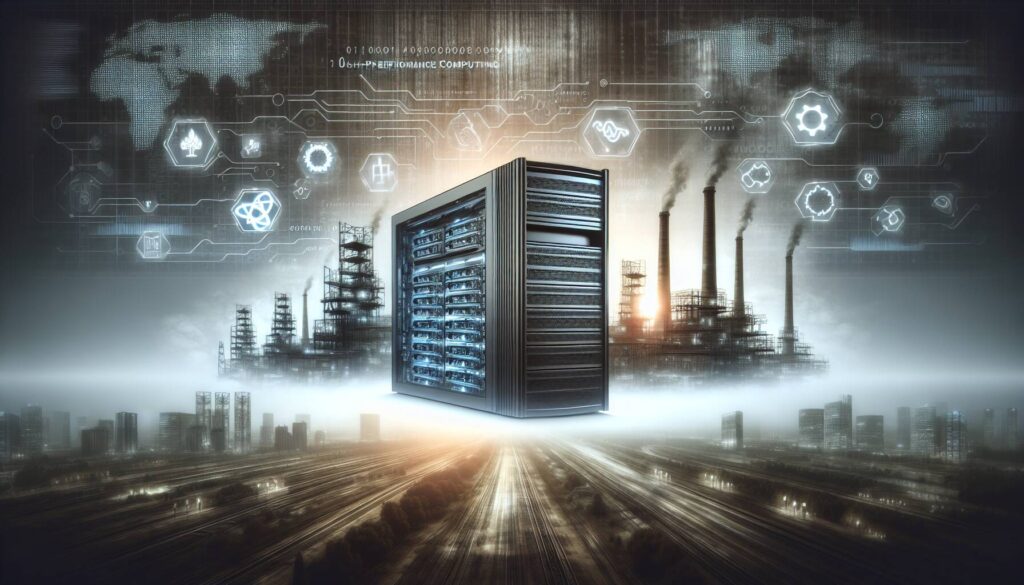MARA Holdings (MARA) is making a notable shift in its business strategy away from its traditional bitcoin (BTC) mining roots. The company announced on Monday that it will acquire a 64% stake in Exaion, a high-performance computing (HPC) unit of the French energy conglomerate EDF. This pivot represents a significant redirection as MARA has historically focused on helping power companies manage grid loads primarily through bitcoin mining.
According to a research report by broker H.C. Wainwright, analyst Kevin Dede noted that while MARA has explored ways to balance energy usage, the decision to dive directly into high-performance computing sets the company apart. With upcoming bitcoin halving events anticipated in 2028 and 2032, and the growing demand for artificial intelligence (AI) capabilities providing lucrative opportunities in computing power, MARA appears to be seeking stronger profit margins through HPC compared to mining alone.
This industry shift is part of a larger trend as more bitcoin mining companies venture into the realms of AI and HPC. Notably, Core Scientific (CORZ) initiated this trend last June with a substantial deal involving AI cloud provider CoreWeave (CRWV). The strategic pivot also allows MARA to tap into the promising sector of sovereign cloud AI services, where data privacy and corporate security are paramount, yet require advanced networking and computational expertise for scaling.
H.C. Wainwright characterized MARA’s acquisition as a savvy move into the HPC landscape, enhancing the company’s credibility in a field where it could face challenges if acting independently. The broker maintains a buy rating on MARA shares with a target price of $28, reflecting optimism about the company’s future. At the time of publication, MARA shares were trading at approximately $15.76, marking a 0.6% increase.
While MARA’s stock has recently benefited from the rising prices of bitcoin, treasury adoption, and inflows from exchange-traded funds, potential risks loom. These include the volatility of bitcoin prices, challenges posed by network difficulty, risks related to capital dilution, and the operational hurdles involved in developing data centers.

MARA Holdings’ Strategic Pivot to High-Performance Computing
The recent shift in MARA Holdings’ strategy highlights several key aspects of its transition from bitcoin mining to high-performance computing.
- Acquisition of Exaion Stake:
- MARA announced a 64% acquisition of Exaion, a subsidiary of EDF.
- This move signifies a diversification of MARA’s business model beyond cryptocurrency mining.
- Focus on High-Performance Computing (HPC):
- Entry into the HPC market is motivated by the demand for artificial intelligence (AI) and its premium returns on compute power.
- The pivot aims to capitalize on expected stronger margins from HPC as opposed to bitcoin mining alone.
- Future Market Considerations:
- The looming bitcoin halving events in 2028 and 2032 are influencing the strategic transition.
- Demand for specialized AI services positions MARA in a growing market with higher profit potential.
- Industry Trends:
- MARA joins other companies like Core Scientific in pivoting towards AI and HPC markets.
- This trend indicates a broader industry shift from traditional cryptocurrency ventures to technology services.
- Investor Outlook:
- H.C. Wainwright maintains a buy rating with a $28 price target, reflecting positive investor sentiment about the strategic shift.
- The stock showed minor gains, indicating cautious optimism among investors.
- Risk Factors:
- Despite potential benefits, MARA faces risks related to BTC price volatility, operational challenges, and market competition.
- Understanding these risks can impact investor decisions and perceptions of MARA’s long-term viability.
These developments suggest a transformative period for MARA Holdings, with potential implications for stakeholders in technology and cryptocurrency markets.
MARA Holdings’ Strategic Shift: A Competitive Analysis
MARA Holdings is making waves with its decision to acquire a substantial stake in Exaion, a high-performance computing (HPC) division of EDF, indicating a strategic shift away from traditional bitcoin mining. This transition aligns with broader industry trends as companies seek enhanced margins amidst evolving market dynamics. While MARA once focused solely on its mining endeavors, the recent move reflects a growing recognition of the lucrative opportunities presented by HPC and artificial intelligence (AI). This pivot can be seen as a strategic advantage over competitors like Core Scientific, which has also ventured into AI but through a different operational model.
The partnership with Exaion not only bolsters MARA’s portfolio but also enhances its credibility in the HPC landscape, an area where mining firms have historically struggled to gain traction. According to H.C. Wainwright analyst Kevin Dede, the intricate networking and computation expertise required for successful scaling in sovereign cloud AI services are now available to MARA, making this acquisition a potentially profitable maneuver. However, this venture comes with its own set of challenges, including the risk of capital dilution and the complexities associated with establishing data centers, which could deter investors wary of operational pitfalls.
Conversely, MARA could face stiff competition from firms like Core Scientific and others that have already established a footprint in the AI sector. With the looming bitcoin halving events and fluctuating BTC prices, the mining industry continues to be a double-edged sword. While MARA’s valuation benefits from recent BTC rallies, the underlying volatility coupled with heavy operational expenses creates a precarious balance that could alienate risk-averse stakeholders.
In essence, MARA’s transition into HPC underscores both opportunities and challenges. Investors and market analysts might benefit from keeping a close eye on how these developments unfold, particularly as the demand for premium computing power escalates. For companies already entrenched in the HPC domain, MARA’s move may intensify competition for resources and expertise, creating challenges in an already crowded market space.

















